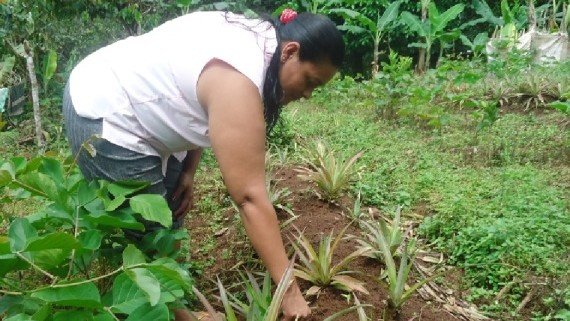People in Cumaica Norte are Thriving Despite Record Drought and High Food Prices
The price of beans in Nicaragua is triple what it was this time last year. For most of the people we work with at CEPAD, that means they and their children are eating more rice and fewer beans.
The causes include global market pressures that have increased exports and a year of devastatingly low rainfall because of the El Niño climate cycle and overall global climate change. Rainfall in Nicaragua has been up to 88 percent lower than normal. But in Cumaica Norte, a community in the San Jose de los Remates region, farmers are celebrating a beautiful bean harvest thanks to an irrigation system CEPAD installed and trained them to use.
Eduardo Orozco Rivas, one of the CEPAD community organizers in Cumaica Norte, couldn’t wait to show recent visitors from Preston Hollow Presbyterian Church his beautiful beans. He explained that they lost a pepper crop to a disease but knew from CEPAD trainings that they could reuse the rich soil to plant another crop on top of the failed peppers.
“With the irrigation and from the fertilizer made by the pepper plants, these beans were born,” he said. “Look at this crop, how beautiful they are! This is a blessing from God.”
Eduardo asked me to thank CEPAD’s partners and supporters for providing the funds that brought the irrigation system to Cumaica Norte. Each system costs just over $2,000, and with the help of donors we have installed more than 20 of these systems. Thank you from Eduardo and all of us here at CEPAD! Your donation will make it possible for more of our farmers to grow the crops that sustain their families.


